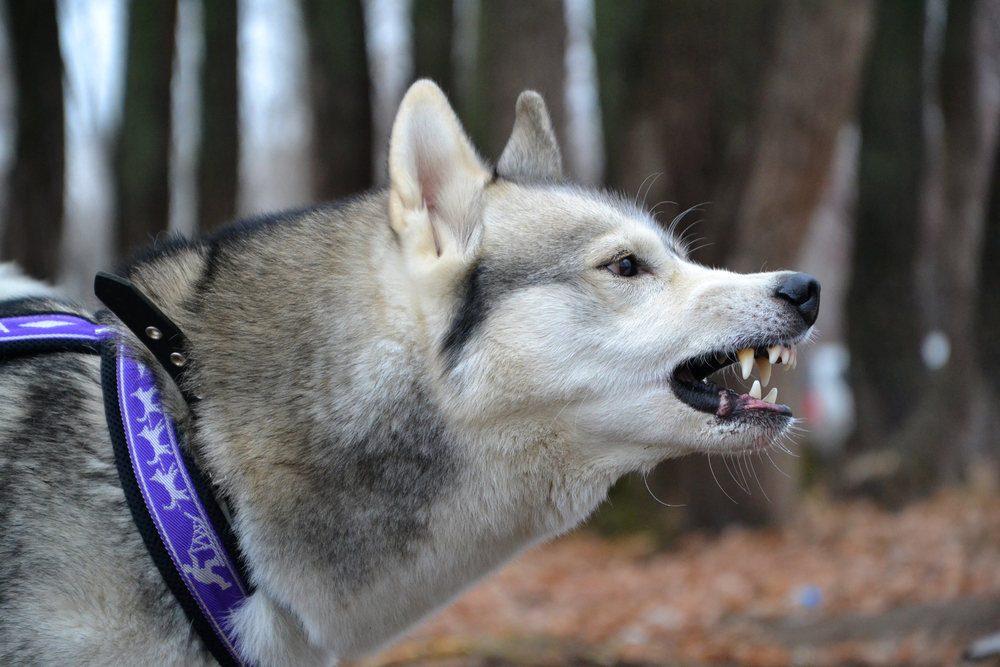 Most dog owners view their pets as a member of the family—a beloved four-legged companion who provides them with companionship and love. However, it’s also important that, as a dog owner, you are able to acknowledge that your dog can be a liability when not handled properly. If you own a dog, here are a few things you should know about your duties as a dog owner, and instances in which you may find yourself liable for your dog’s actions.
Most dog owners view their pets as a member of the family—a beloved four-legged companion who provides them with companionship and love. However, it’s also important that, as a dog owner, you are able to acknowledge that your dog can be a liability when not handled properly. If you own a dog, here are a few things you should know about your duties as a dog owner, and instances in which you may find yourself liable for your dog’s actions.
Leash Laws
One of the most important things you can do as a dog owner is to ensure that your dog is properly restrained at all times. There are very few areas where dogs are permitted to run free (primarily, this is only allowed in dog parks). In all other areas, your pet should be properly restrained at all times. These laws protect other people, other dogs, and your own pet from dangerous situations.
Regardless of how friendly your pet may be, it is simply not safe to allow a dog to run off leash. For instance, if your dog runs up to another dog who is being walked on a leash, and your dog is bit by the leashed dog, the leashed dog’s owner likely won’t be held liable for your dog’s injuries. This is because they were adhering to state leash laws while you were not, making you the liable party for any injuries that may have occurred to either dog.
Above all, dog owners should ensure their dogs are leashed at all times to avoid liability issues.
Dog Bite Liability
So, what if your dog does bite a person or another dog? In what circumstances would you be held liable for that bite? Generally speaking, the law expects dog owners to properly train their pets and, if their dogs are aggressive, to alert anyone who may approach the dog to the fact that the dog may bite. “Beware of Dog” signs on your gates or a “Do Not Pet” harness on your dog when out on a walk are both good ways to deter anyone from approaching your dog and to potentially mitigate some of your own liability. However, in general, it is considered a dog owner’s responsibility to ensure their dog does not pose a danger to anyone.
Let’s look at an example: Your dog is generally not aggressive, but can be wary around strangers. You have a harness on your dog that says “Do Not Pet” and you take your dog for a walk. While you’re resting at the park, a child runs up to your dog and, without asking, tries to pet your dog on the head. Your dog snaps and bites the child’s hand. Now what?
Because your dog had a clear warning on them that they should not be pet, and because your dog was leashed, you may have some grounds to reduce your liability for the dog bite. However, in most states, dog owners have what is known as “strict liability” for any injuries caused by their dogs. This would mean that, despite your best efforts to ward off unwanted touch for your pet, you could still be liable for the child’s injuries.
The exception to the strict liability law is if someone is deliberately antagonizing your dog. As an example, let’s say you have a fenced-in yard, but the fence has slats wide enough for your dog to put their nose through. A pair of boys stops beside your fence and begins to tease and terrorize your dog in the yard—kicking at the fence, jabbing your dog with a stick, and so on. When one boy’s kick gets too close, your dog manages to sink their teeth in, biting his leg. In a case like this, you would likely not be held liable due to the bite victim’s antagonistic behavior towards the dog. Likewise, you aren’t held liable if your dog injures someone who is illegally trespassing on your property.
While liability for dog bite injuries almost always fall on the dog owner, it’s still important to understand your rights. If your dog has bitten someone, or if you’ve been bitten by a dog, contact The Harr Law Firm for assistance.
Damage to Property
Of course, people aren’t the only things that dogs will bite. Most dog owners have experienced having some of their personal possessions chewed up by a teething puppy or bored canine. But what if the property your dog chews up doesn’t belong to you? Again, dog owners are considered liable for their dogs’ behavior. Perhaps someone is dog sitting for you and your dog chews up their furniture. Legally speaking, you should be liable for the damage.
The grayest area in this category would pertain to a dog biting another dog. Though dogs are considered property, each owner is responsible for their pet, so multiple layers of liability must be applied. As described earlier, leash laws must be considered, as well as all details regarding the circumstances of the bite. If your dog was seriously injured by another dog, we encourage you to contact our personal injury attorneys so we can advise you on how to best handle the situation. Call now to schedule a consultation.